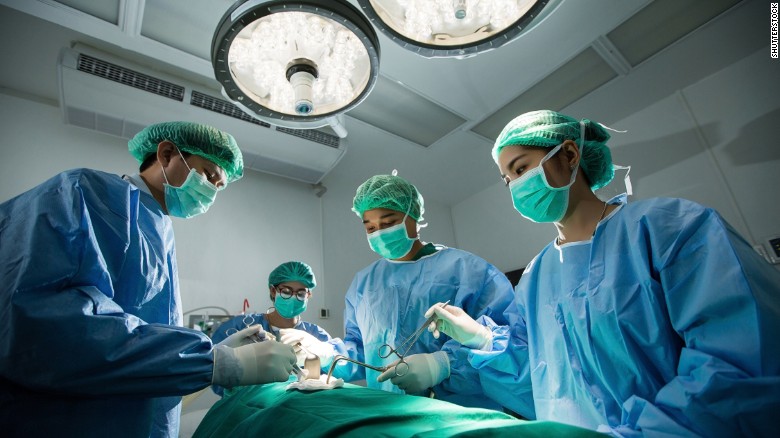|
Getting your Trinity Audio player ready...
|
Oregon, USA – A massive data breach involving the popular corporate file transfer tool MOVEit Transfer has put the protected health data of 1.7 million Oregon citizens at risk. Performance Health Technology (PH Tech), a data management services provider for U.S. healthcare insurers, confirmed this week that it was impacted by the mass exploitation of the MOVEit vulnerability.
The breach allowed unauthorized access to patients’ personal and sensitive health information, potentially leading to severe consequences for those affected.
In a notice on its website, PH Tech revealed that an unauthorized person had exploited the vulnerability in Progress MOVEit software, leading to the download of data files containing sensitive information. The compromised data includes names, dates of birth, Social Security numbers, email, and postal addresses, member and plan ID numbers, insurance authorizations, diagnosis and procedure codes, and claims information.
The Oregon Health Authority, which partners with PH Tech, estimated that around 1.7 million of its members were impacted by the breach. The organization is urging affected individuals to activate credit monitoring as a precautionary measure.
The fallout from the MOVEit mass hacks has been far-reaching, with multiple entities experiencing data breaches related to the vulnerability. The Oregon Department of Transportation, the U.S. government services contractor Maximus, and the benefits administrator for Pennsylvania’s Allegheny County are just a few of the organizations that have been affected.
As of now, cybersecurity company Emsisoft has identified 580 known victims of the MOVEit vulnerability, impacting more than 40 million individuals worldwide. The hacking group responsible for these attacks, known as Clop and believed to be linked to Russia, has been publishing stolen data from targeted organizations on dark web leak sites. Notable victims on their list include U.K. communications regulator Ofcom, Dutch GPS company TomTom, and the U.S. Department of Energy.
The scale and severity of these attacks underscore the urgent need for organizations to bolster their cybersecurity measures and promptly address any known vulnerabilities in their systems. Healthcare providers and government agencies, in particular, must take extra precautions to safeguard sensitive information, as the potential impact on individuals can be immense.
The MOVEit mass-hacks serve as a stark reminder of the ever-present threat posed by cybercriminals, and the importance of robust cybersecurity practices to protect both personal data and critical infrastructure. Authorities and affected organizations must work together to investigate and respond to these breaches, while also proactively fortifying their defenses against future attacks.
Despite the mounting number of victims and the gravity of the situation, Clop, the hacking group responsible for the mass attacks, remains relentless. They continue to target organizations worldwide, causing significant disruptions and compromising sensitive data.
In response to the growing concern, cybersecurity experts are urging companies and government agencies to reevaluate their security protocols and prioritize proactive measures. This includes regular software updates, vulnerability assessments, and employee training on recognizing phishing attempts and other social engineering tactics used by hackers.
The MOVEit vulnerability has proven to be a potent weapon in the hands of cybercriminals, enabling them to infiltrate seemingly secure systems with ease. As the list of victims expands, the impact on individuals and organizations is becoming increasingly severe. Apart from the immediate threat of identity theft and financial fraud, compromised healthcare data can also lead to medical identity theft, fraudulent insurance claims, and reputational damage for affected entities.
In light of these developments, lawmakers are being called upon to strengthen data protection regulations and hold companies accountable for safeguarding sensitive information. The healthcare sector, in particular, needs stringent security standards to prevent breaches that can have life-altering consequences for patients.
Meanwhile, security researchers and law enforcement agencies are actively investigating the origins of the MOVEit vulnerability and the hacking group responsible for the attacks. Identifying the culprits behind these breaches is crucial to bringing them to justice and disrupting their operations.
As the situation unfolds, affected individuals should remain vigilant and take necessary precautions to protect their identities and personal information. Enrolling in credit monitoring services, regularly reviewing financial statements, and reporting any suspicious activity to the relevant authorities are essential steps to mitigate the potential fallout from the breach.
For organizations, this serves as a stark reminder that cybersecurity should be treated as a top priority. Regular security audits, employee education, and investing in advanced threat detection and prevention tools are all essential components of a comprehensive cybersecurity strategy.
The MOVEit mass-hacks represent a pressing global cybersecurity issue that demands immediate attention and unified action. Collaboration between government agencies, cybersecurity firms, and private enterprises is critical to mitigating the damage caused by these sophisticated cyber-attacks.
As the hacking landscape evolves, it is evident that no entity, regardless of its size or industry, is immune to cyber threats. The incident underscores the need for a collective effort to stay ahead of cybercriminals and protect the digital infrastructure upon which modern societies rely.
As investigations continue, the focus must shift towards enhancing cybersecurity practices to prevent future breaches and safeguard sensitive data effectively. Only through a united front against cyber threats can organizations and individuals hope to navigate the perilous waters of the digital age securely.
